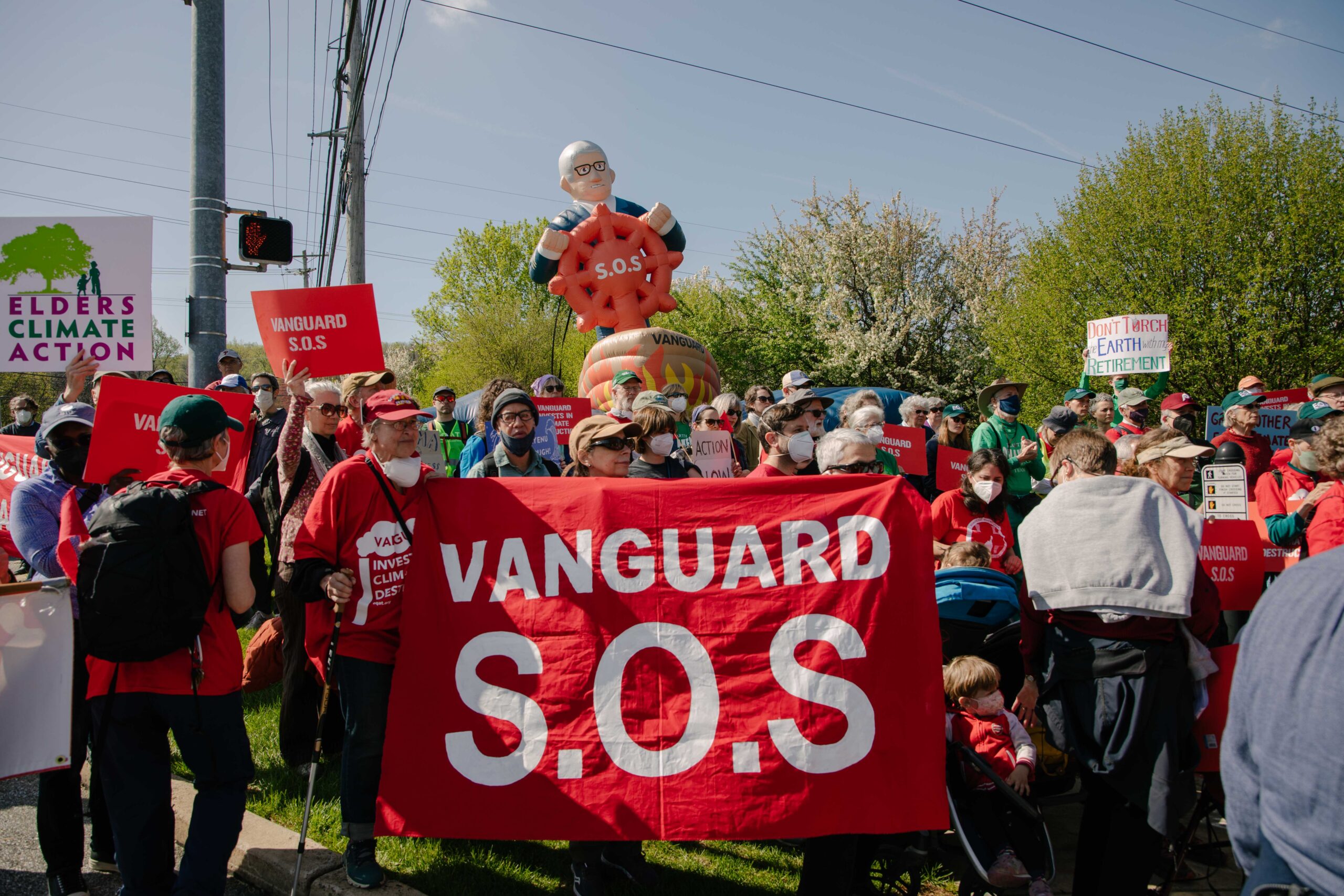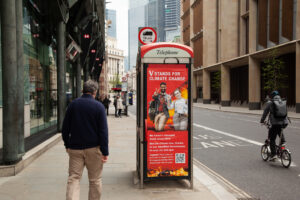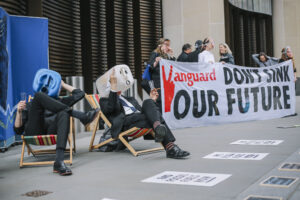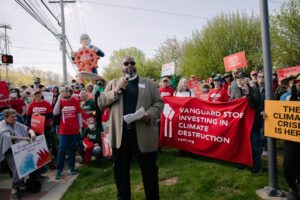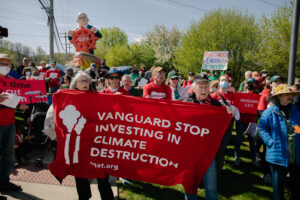Last week, on Wednesday, April 20, Vanguard S.O.S., a global climate campaign made up of civil society organizations, finance experts, grassroots groups, and climate activists, was officially launched.
The network’s first official action was to send a letter signed by over 100 organizations representing more than 6 million people to Vanguard CEO Tim Buckley. The letter called on the finance giant to implement an ambitious series of solutions to address the detrimental impacts of the firm’s investments, and urged Mr. Buckley to enact the visionary financial leadership needed to meet the scale and urgency of the climate crisis.
Throughout the week, thousands of people joined the effort to tell Vanguard to fix its climate problem. Over 2,000 people — close to 40% of whom are Vanguard customers — sent faxes to the asset manager, intentionally using the outdated technology to draw a comparison to Vanguard’s outdated investment strategy. Thousands more signed a Sierra Club petition or joined FixMyFunds, an effort to help investors take control of their investment power and shift the economy toward a sustainable future.
And climate activists didn’t stop there. Over a hundred people attended ACRE’s webinar on Vanguard’s Empty Promises while hundreds more took to the streets in climate protests in Pennsylvania, North Carolina, and England at Vanguard offices.
At Vanguard’s U.K. headquarters in Central London, activists put up parody Vanguard ads on nearby bus stops while protesters with Extinction Rebellion played on the corporation’s ship logo with a Titanic-themed protest.
Members of Extinction Rebellion’s families group made speeches while holding pictures of their children. Lucy Porter, a former teacher from Leeds said, “I’ve traveled to London to be here today because Vanguard is responsible for funding some of the most destructive projects in the world. The U.N. Secretary-General said we’re at code red for humanity and that the alarm bells are deafening. Vanguard is ensuring a climate catastrophe by putting profits before people and pouring billions into projects already damaging the most vulnerable communities around the globe. I’m scared for the future, and I’m even more terrified for those experiencing the consequences of Vanguard’s investments right now.”
At Vanguard’s global headquarters in Pennsylvania, over 150 people from groups including EQAT, Third Act, Power, Dayenu Drexel, Dayenu Penn, XR Philly, 350 Philly, Sierra Club PA, and Elders Action Network came together on Earth Day to protest Vanguard’s funding of climate destruction.
At that Earth Day demonstration — the culmination of a 5-day, 40-mile walk protesting Vanguard — Eileen Flanagan, EQAT’s campaign director said, “Pennsylvanians who live and breathe the pollution from these companies across our region are already suffering enough, and scientists agree we are in a climate emergency. Vanguard is running out of time. Vanguard must commit to decarbonize its entire portfolio by pushing the highest carbon emitters to design and implement a just plan to align their business model to a 1.5 degree future.”
In addition to all the demonstrations against Vanguard last week, Reclaim Finance published a new report scoring asset managers’ climate credentials that ranked Vanguard a 0 out of 30.
So — how did Vanguard respond to all this?
Several news publications reached out to Vanguard for comment on the protests and the new campaign. Multiple spokespeople from Vanguard parroted the same line to the media — “Vanguard considers climate change to be a fundamental risk to many companies and their shareholders’ long-term financial success.”
Unfortunately for Vanguard’s customers and for our changing climate, considering climate change a fundamental risk and implementing concrete actions that actually deal with the size and consequences of that risk are two entirely different things. The latter is what is required of the firm to meet the urgency of the moment, and specific solutions were included in the letter delivered to Vanguard CEO Tim Buckley. He — or anyone from Vanguard for that matter — still has yet to reply.
In a departure from its characteristic silence on climate, Vanguard published a blog post on its website a mere 14 hours after the Vanguard S.O.S. campaign launch. Coincidence?
However convenient the timing, the content is not. The post is a textbook example of repackaging stale and insufficient statements on climate change. It linked to a Vanguard research paper that evaluated the economic impacts of climate change in several warming scenarios, but failed to include the urgent steps necessary for Vanguard to meet the scale of the crisis.
Then, this Monday, Vanguard published a Q&A with its global head of investment stewardship, John Galloway, on its website. Simply restating much of what was in the blog post, the Q&A again contained no new information or commitments by the asset manager.
Clearly, Vanguard is feeling the pressure, as evidenced by the scramble to quietly get climate-related content on its website, but this response is totally insufficient and woefully out of step with the times. Posting a few blogs and papers may have been considered climate leadership in 2010, but today it amounts to Vanguard trying to play catch-up with baby steps.
So far, Vanguard has been trying to downplay its role in the climate crisis and shirk the responsibility it has to its customers and the world to be an active part of the solution. But Vanguard S.O.S. is not going to let the firm get away with that. Together with Vanguard’s customers and employees, this campaign will push the asset manager to chart a new course away from climate catastrophe and toward truly sustainable investing.
